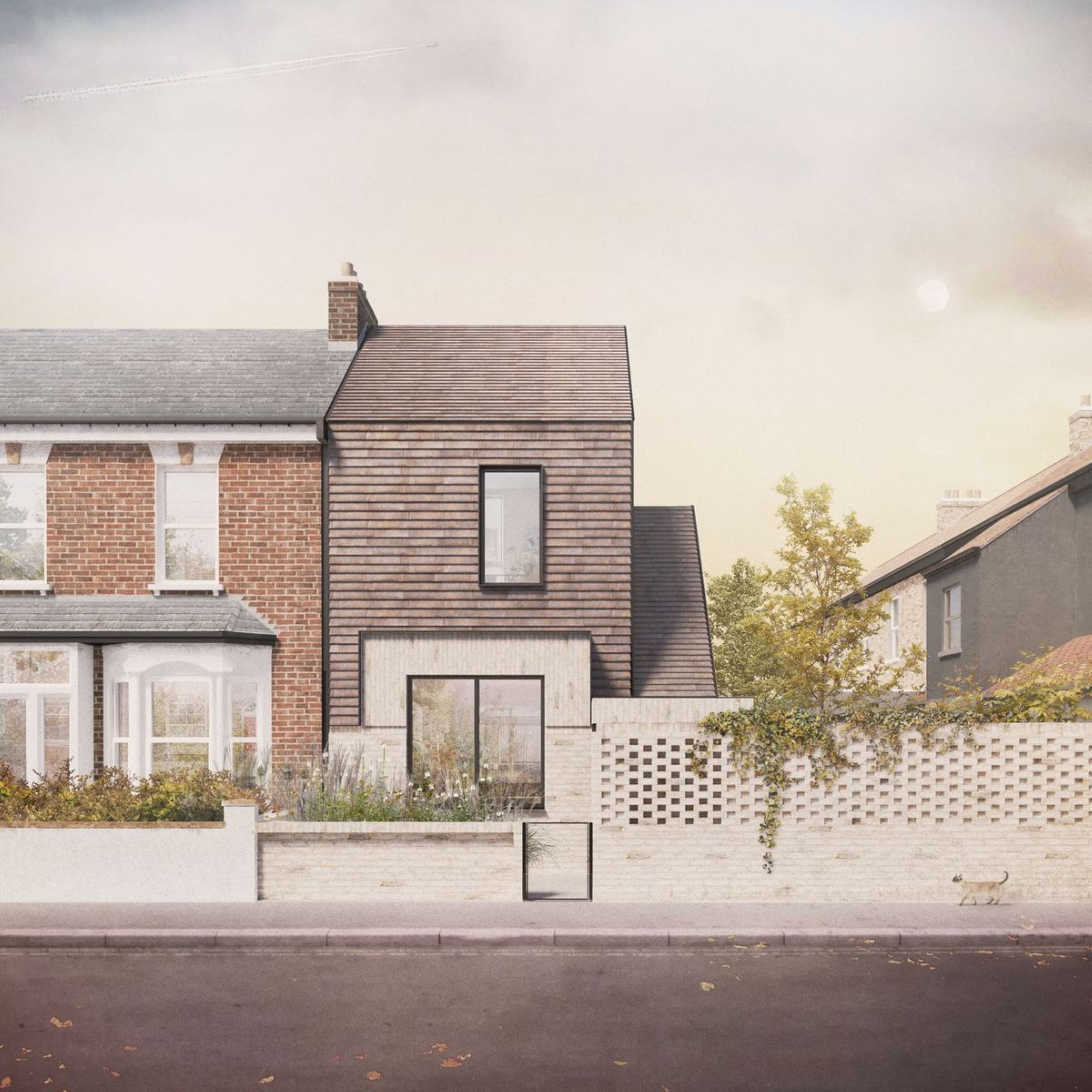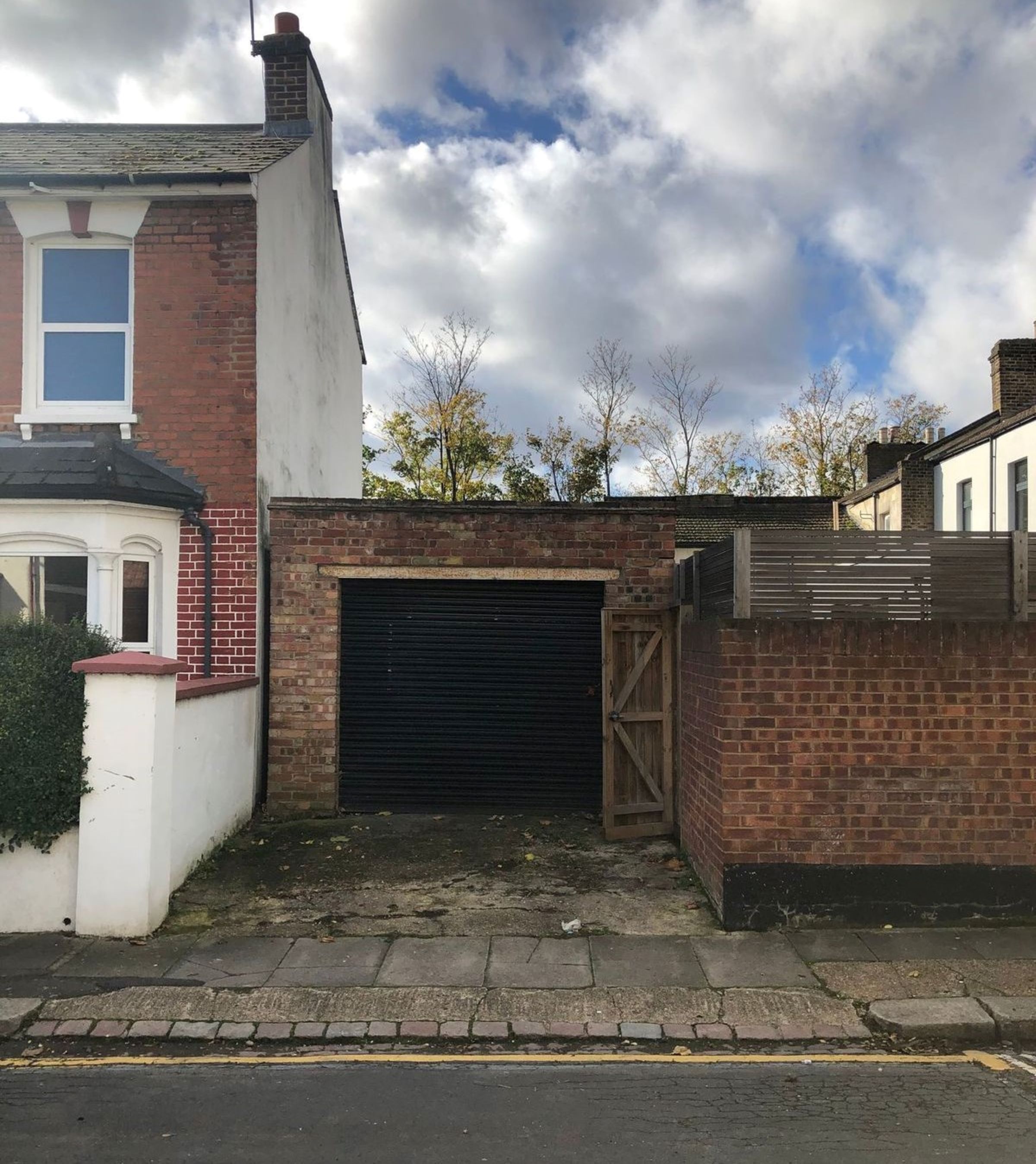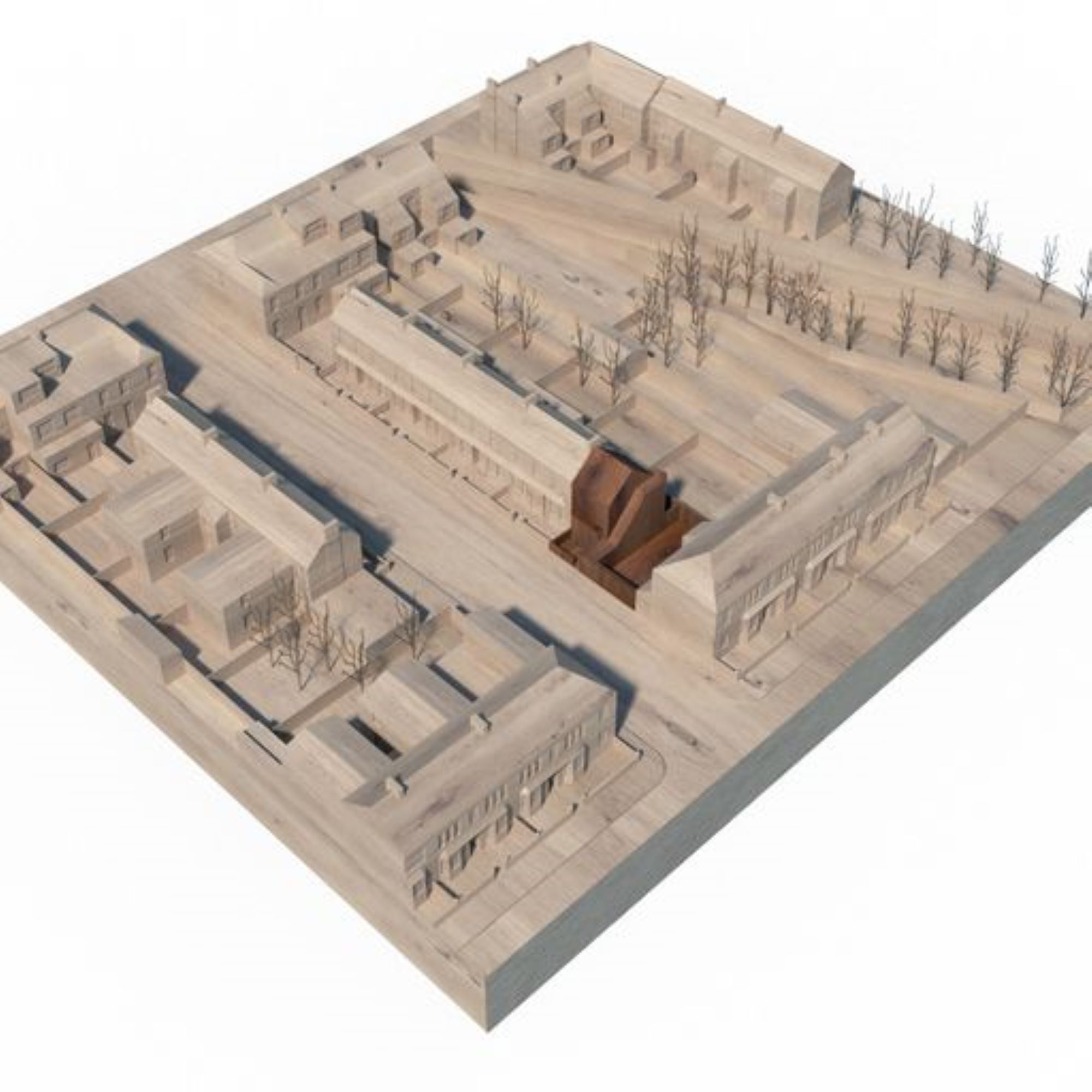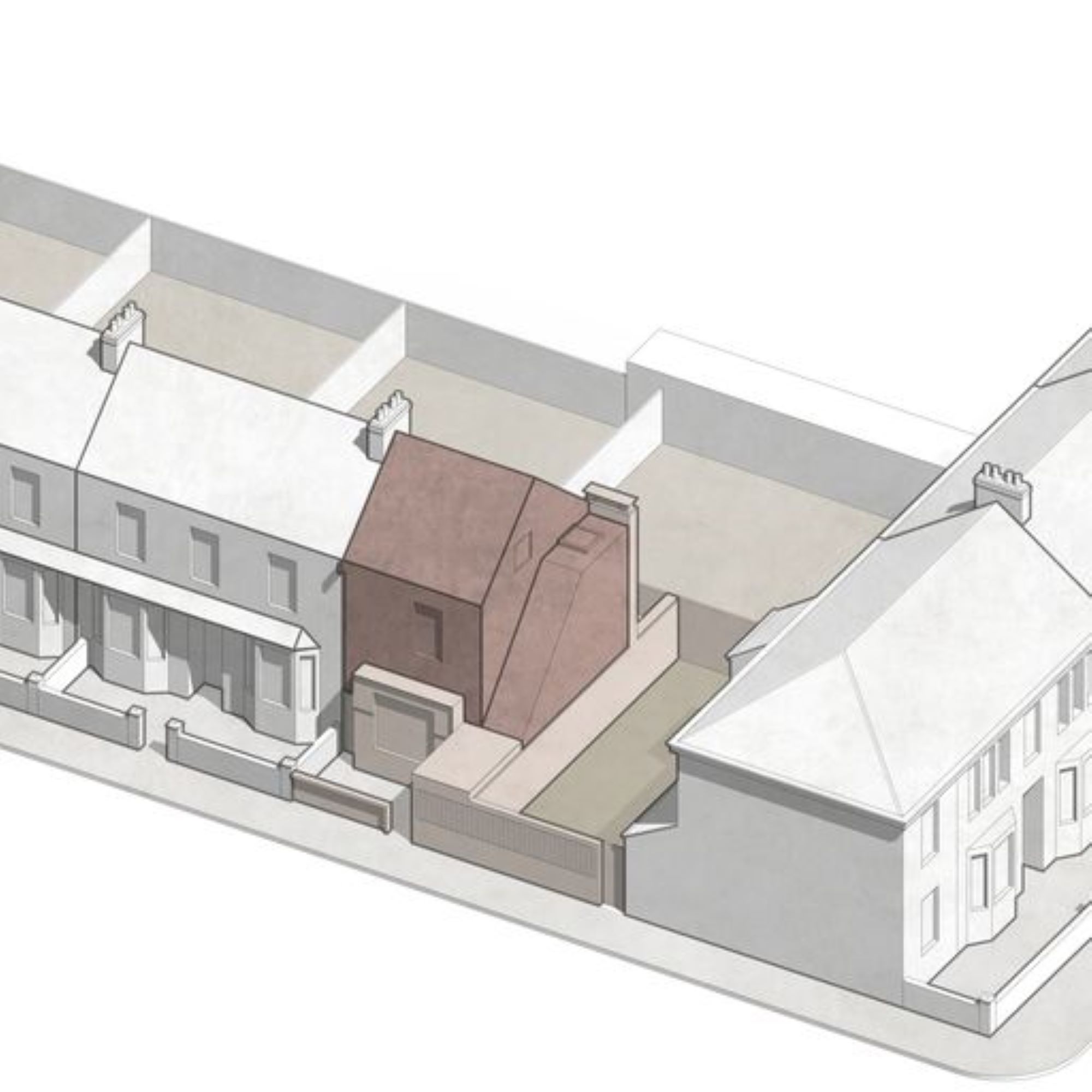How a tiny garage measuring just 67m2 will be transformed into this 'compact home'
The mini-terraced home is under the normal minimum size parameters for gaining planning approval but succeeded due to its clever design

A garage located on in a brownfield area with a size of just a 67m2 is being turned into a home in East London.
The planned home in Walthamstow has been designed to limit the impact to neighbouring homes and improve the look of the area by replacing the dilapidated garage with a design, which is in-keeping with the area.
Planning was approved by Walthamstow Forest Council, even though homes of this size, when in proximity to other homes, are normally not given planning permission, but the council worked with the architects to approve the designs.
Tiny garage is too small for many modern cars
The current site for the home includes just a single-storey garage and an 11m2 garden owned by the main property owners.
The existing garage is in disrepair and has become disconnected from the main property, whilst also sitting adjacent to Victorian double-fronted terrace properties.
This is when the developers had the idea to make a home via a garage conversion.

House design is small but blends in on the street
To replace the disused garage a compact two-storey dwelling was proposed, designed to limit the impact on the existing street's image.
Get the Homebuilding & Renovating Newsletter
Bring your dream home to life with expert advice, how to guides and design inspiration. Sign up for our newsletter and get two free tickets to a Homebuilding & Renovating Show near you.
The designs feature a bay window and the classic Victorian sash proportions, while maintaining similar designs to that of the area's Victorian brick build homes.
The first floor design is a compact form that wraps around the roof and main staircase, forming the "upper block" characterised by modern slab tiles. This upper block will be elevated by a brick plinth.

The external form of the building has been developed with a daylight/sunlight consultant to help minimise the impact on neighbouring residents.
Practice director Chris Hawkins said: "The result is a small, compact and playful dwelling design, minutes from the main transport hubs of E17. Careful consideration over natural daylighting and internal ceiling heights was given in respect of creating a balance of flow and connection to the smaller external areas."
Planning approved, despite unusually small design
Waltham Forest Council gave pre-consultation advice for the site due to the peculiarly small site.
Councils will rarely grant planning applications for such small house designs, however, flexibility was given to this home regarding the amenity standards (the requirements and facilities that are needed for a housing in multiple occupation) and allowed the home to require "less stringent provisions" than usual.
The council also endorsed the development's concept for a small site, aligning it with London plan policies for high-quality design, street-facing infill, and zero parking homes.

Approval was also granted as the plans aligned with the borough's overall demand for smaller dwellings and the potential to utilise underused brownfield sites, which is also being encouraged by the government as part of their '10 Principles' to tackle the housing crisis.
The council approved the designs, which were designed by Forgeworks, earlier this year with work set to start in early 2024.

News Editor Joseph has previously written for Today’s Media and Chambers & Partners, focusing on news for conveyancers and industry professionals. Joseph has just started his own self build project, building his own home on his family’s farm with planning permission for a timber frame, three-bedroom house in a one-acre field. The foundation work has already begun and he hopes to have the home built in the next year. Prior to this he renovated his family's home as well as doing several DIY projects, including installing a shower, building sheds, and livestock fences and shelters for the farm’s animals. Outside of homebuilding, Joseph loves rugby and has written for Rugby World, the world’s largest rugby magazine.
